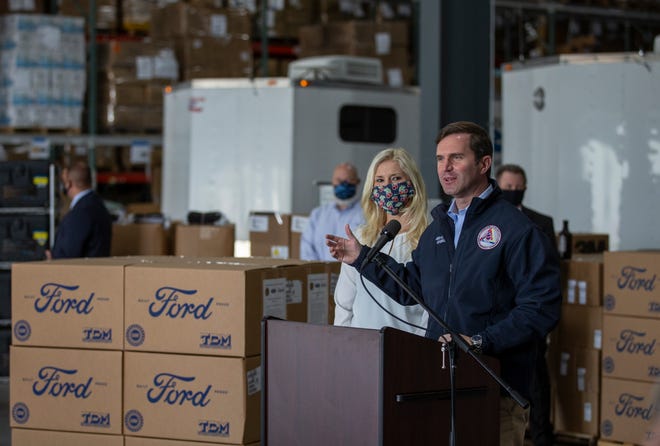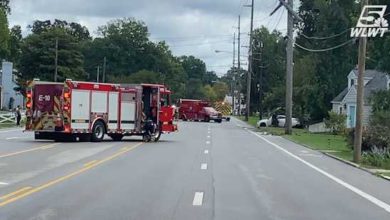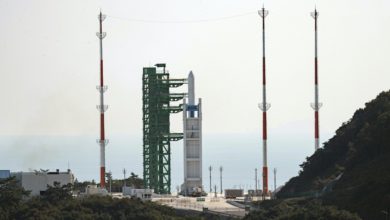
Kentucky Gov. Andy Beshear said he would send state legislators a framework for a plan this week to give certain essential workers a bonus next year, using $400 million of federal funds from the American Rescue Plan Act.
The plan involves bonuses for people who worked on the front-line of the pandemic for a full two years as of March 2022, with this bonus serving as both a reward and an incentive to stick with their current job for another six months.
The governor said he hoped to form a working group with the legislature to flesh out the details for the plan, which could be passed by the Kentucky General Assembly when they go back into session in January.
Some Republican legislators, including Senate President Robert Stivers, have urged Beshear for weeks to instead call a special session of the legislature this fall to fund immediate bonuses, but only for front-line workers at hospitals and nursing homes.
Here's what we know about Beshear's plan:
Who would be eligible for a bonus?
Beshear has said it would ultimately be up to the working group to determine who is eligible, but he has referenced several different categories of workers that he believes should be included.
First floating his plan in a press conference Monday, the governor mentioned not just health care workers, but grocery store employees, emergency medical technicians, police, firefighters and certain factory workers. His press release from that day also mentioned educators.
More:Nursing shortage worries Kentucky hospitals as COVID-19 delta variant cases rise
Beshear on Thursday said U.S. Treasury guidance issued for the American Rescue Plan Act has a set definition for who is eligible for such bonuses, including those "on the front lines, providing essential services, having a lot of interaction with the public during that time and/or handling things that have been passed," as in warehouse work.
The governor said they should also talk about including certain workers in agriculture, sanitation and those involved in "getting our electric grid up and running," in addition to local health department workers and other government employees that interact routinely with the public.

How large would a worker's bonus be?
This will ultimately depend on how many different types of workers are eligible and whether the pot of money to fund them is $400 million, as Beshear suggested.
Beshear mentioned Thursday that federal guidance for ARPA funding may also prohibit bonuses for workers whose salary is above a certain level, in addition to "some different equity considerations."
When could workers receive the bonus?
If approved by the legislature, workers could receive the bonus at some point after they worked a full two years of the pandemic, which landed in Kentucky in March 2020.
However, the next round of federal ARPA funding for Kentucky — a little more than $1 billion — will not be delivered until that May, and the full balance of ARPA funds the state has received has already been appropriated for other purposes.
Are there alternate bonus plans?
Stivers and Sen. Ralph Alvarado, R-Winchester, have both pushed Beshear to call another special session to fund worker bonuses, specifically for nurses and other health care personnel in hospitals and nursing homes dealing with critical workforce shortages.
They and other Republican senators had hoped Beshear's call for the special session last month would have included such bonuses, as Kentucky associations of hospitals, nursing homes and nurses had requested immediate assistance.
More:Here's what $700 million in federal relief funds will cover for Kentucky infrastructure
Beshear has resisted calls for another special session, saying there are no more ARPA funds to appropriate until next year. He also fears workers may quit after receiving an immediate bonus and it could lead to a bidding war with traveling nurses agencies that pilfer staff and then will raise rates on hospitals.
Stivers has suggested Beshear could use projected surplus or rainy day funds to give out bonuses before the end of the year, or temporarily redirect ARPA funds from water and broadband infrastructure projects where they are currently appropriated.
Reach reporter Joe Sonka at [email protected] and follow him on Twitter at @joesonka. Support strong local journalism by subscribing today at the top of this page.








